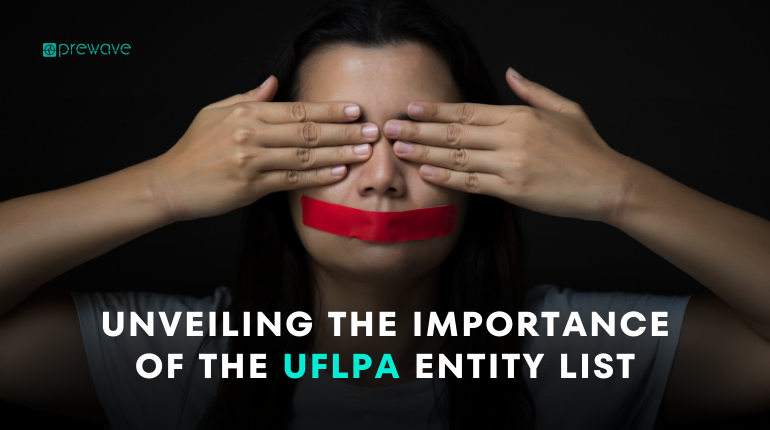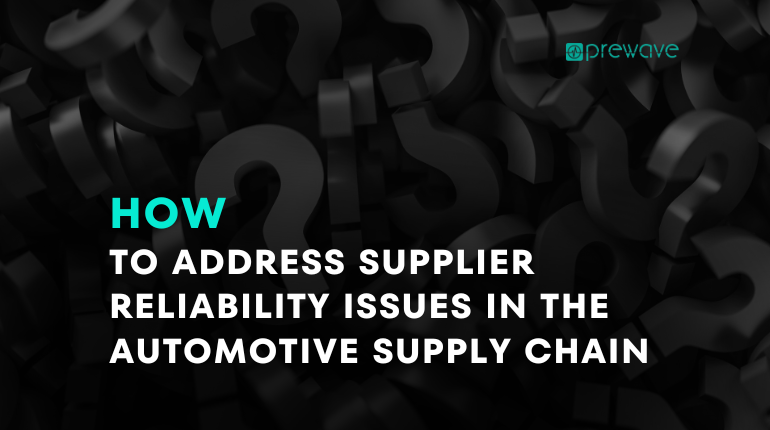The UFLPA, or Uyghur Forced Labor Prevention Act, is a legislative measure aimed at combatting forced labor practices in the Xinjiang Uyghur Autonomous Region of China. It prohibits the importation of goods, wares, articles, and merchandise produced wholly or in part in Xinjiang or by certain entities, into the United States under Section 307 of the Tariff Act of 1930. This act is crucial for several reasons, including:
Human Rights Protection: It is instrumental in protecting the human rights of individuals in Xinjiang who are vulnerable to forced labor practices. By banning the importation of goods produced throughim such means, it helps to prevent the exploitation and abuse of workers.
Legal Accountability: The UFLPA holds companies accountable for the sourcing practices of their supply chains. It places the responsibility on importers to verify that their goods were not produced using forced labor, incentivizing them to conduct due diligence and adopt robust compliance measures.
Global Supply Chain Transparency: The UFLPA contributes to greater transparency in global supply chains by requiring importers to trace the origins of their goods and verify compliance with labor standards.This blog post will delve into the intricacies of the UFLPA Entity List—and its significance in fostering responsible supply chain management.
What is the UFLPA Entity List?
For an entity to be added to the UFLPA Entity List, it must meet one of the following criteria:
- Engaging in the mining, production, or manufacturing of goods using forced labor either wholly or in part
- Collaborating with the Xinjiang government in the recruitment, transportation, transfer, harboring, or receipt of forced labor from Uyghurs, Kazakhs, Kyrgyz, or other persecuted minority groups
- Exporting products to the U.S. that are produced by entities falling into the first two categories
- Sourcing material from Xinjiang or entities working with the Xinjiang government or the Xinjiang Production and Construction Corps (XPCC) in government-led schemes involving forced labor
The UFLPA Entity List’s Ripple Effect on Global Trade
Upon its inception in June 2022, the UFLPA Entity List initially comprised 20 entities, all of which were involved in the production of goods across various sectors, including cotton, textiles, clothing, apparel, hair products, electronics, computer components, and silica-based products such as polysilicon.
The UFLPA Entity List remained unchanged for its first year. However, in June 2023, the Forced Labor Enforcement Task Force (FLETF) added two new entities: Xinjiang Zhongtai Chemical Co., Ltd. and Ninestar Corporation, along with eight Zhuhai-based Ninestar subsidiaries. Two months later, Camel and Chenguang were also added to the list.
Most recently, on January 19, 2024, in a letter addressed to Secretary Alejandro Mayorkas of the Department of Homeland Security, the China Select Committee called for the expansion of the UFLPA Entity List to include companies outside of China, without altering the statute’s language. The letter emphasized the necessity of including companies outside China, particularly those profiting from Uyghur forced labor, citing significant detentions of goods from third countries like Vietnam and Malaysia—a staggering nearly two billion dollars’ worth of shipments from third countries being detained for UFLPA violations. This proposed action would mark a substantial escalation in UFLPA enforcement.
While FLETF offers a process for listed entities to request removal, clear and convincing evidence must be presented, which should demonstrate that production processes do not involve forced labor and no longer meet the criteria under the applicable sub-list. However, an entity has yet to be removed from the UFLPA Entity List.
The addition of Camel and Chenguang to the Entity List aligns with what seems to be a shift in enforcement priorities of the U.S. government. The 2023 Strategy Update underscores this apparent shift, stating that, besides the traditional “high-priority sectors” identified in the UFLPA, such as cotton, tomatoes, and polysilicon, FLETF will also focus on monitoring sectors identified by NGOs as potential risk areas, including:
- Red dates and other agricultural products
- Vinyl products and downstream products
- Aluminium and downstream products
- Steel and downstream products
- Lead-acid and lithium-ion batteries
- Copper and downstream products
- Electronics
- Tires and other automobile components
The mention of batteries and automobile components in particular echoes CBP’s (Customs and Border Protection) recent enforcement statistics, which indicate that, since February 2023, 48 shipments classified as automotive and aerospace were detained under the UFLPA.
CBP ultimately denied entry to 10 of these shipments, while 37 cases remain pending.
In July 2023 alone, CBP reviewed 18 automotive and aerospace shipments, representing a threefold increase from the previous five-month average.
Notably, CBP’s detention efforts have not been restricted to goods of Chinese origin.
Recent data from CBP reveals that:
- 60% of detained goods originated in Malaysia
- 87% of all denied shipments originated in Vietnam or Malaysia
As outlined in the 2023 Strategy Update, CBP prohibits imports from any producer of finished products found to utilize inputs from Xinjiang or entities on the UFLPA Entity List, regardless of the country of final manufacture. Moreover, CBP prioritizes manufacturing in third countries and illegally transshipped goods with inputs from Xinjiang.
Decoding the UFLPA Entity List: Compliance and Risk Mitigation
As industries roll out UFLPA compliance programs, global supply chains will undergo transformation as companies work to manage risks and enhance resilience. Already, observers have noted the UFLPA’s impact on supply chains associated with green energy products, rare earth minerals, food items, and pharmaceutical precursors. Companies whose goods are prioritized for detention by CBP have begun witnessing shifts in their supply chains.
To comply with the UFLPA, companies must ensure multi-tier transparency across the supply chain, and mitigate risks accordingly.
Practical Applications for Business
The most important step is to trace the origins of your product, down to the raw materials. To do this, you should map your entire supply chain. This will help you determine whether you are importing or purchasing goods produced in whole or in part from Xinjiang or involving UFLPA Entity List entities.
The Prewave platform can help you ensure multi-tier transparency. The process is simple: we begin with a list of your Tier 1 suppliers before identifying all the Tier 2, 3, 4 suppliers using customs data.
Customs data reveals important information, including sub-tier suppliers, as well as the type of product that they have shipped to each other. Based on the number of shipments and the product material, we can make accurate predictions and determine your level of exposure to any potential disruptions.
This, in turn, will help you identify potential risks, as well as any suppliers that might violate UFLPA requirements. Our risk monitoring solution sends you alerts in real-time, informing you of any potential risks—sometimes even weeks or months in advance.
We analyze different types of data (private, public, and shared) in 50+ languages. This means that information that might normally take days or even weeks to reach you will be filtered and analyzed by our system, and sent to you on the same day. From alerts that affect suppliers on the company level to alerts that affect companies directly or indirectly, on a regional level, the Prewave system contains all the information needed to plan for, prevent, or mitigate risks that are in direct violation of UFLPA requirements.
Furthermore, the reporting system easily accessible from within the platform gathers all information needed to prove compliance with UFLPA standards—and the report is generated automatically.
This means that companies using Prewave have all the documentation necessary for rebutting the presumption set forth in the guidance, and can easily show proof of compliance without going through the hassle of manual, error-prone processes. If the Commissioner submits an inquiry, the company can access all necessary information directly from the platform, and can respond to any requests swiftly.
Conclusion
It is imperative for importers to recognize the multifaceted impact of the UFLPA Entity List. Compliance with this legislation requires robust due diligence, comprehensive supply chain mapping, and effective management practices. By understanding and addressing the complexities of the supply chain, importers can uphold ethical standards, mitigate legal risks, and contribute to the global effort to eradicate forced labor and human rights abuses.
Companies should remain vigilant and informed about the UFLPA and its implications for supply chain ethics. By advocating for transparent and ethical practices within their businesses, individuals can contribute to a more sustainable and just global economy.
To learn more about how Prewave can help you comply with present and future legislation, book a demo today!



